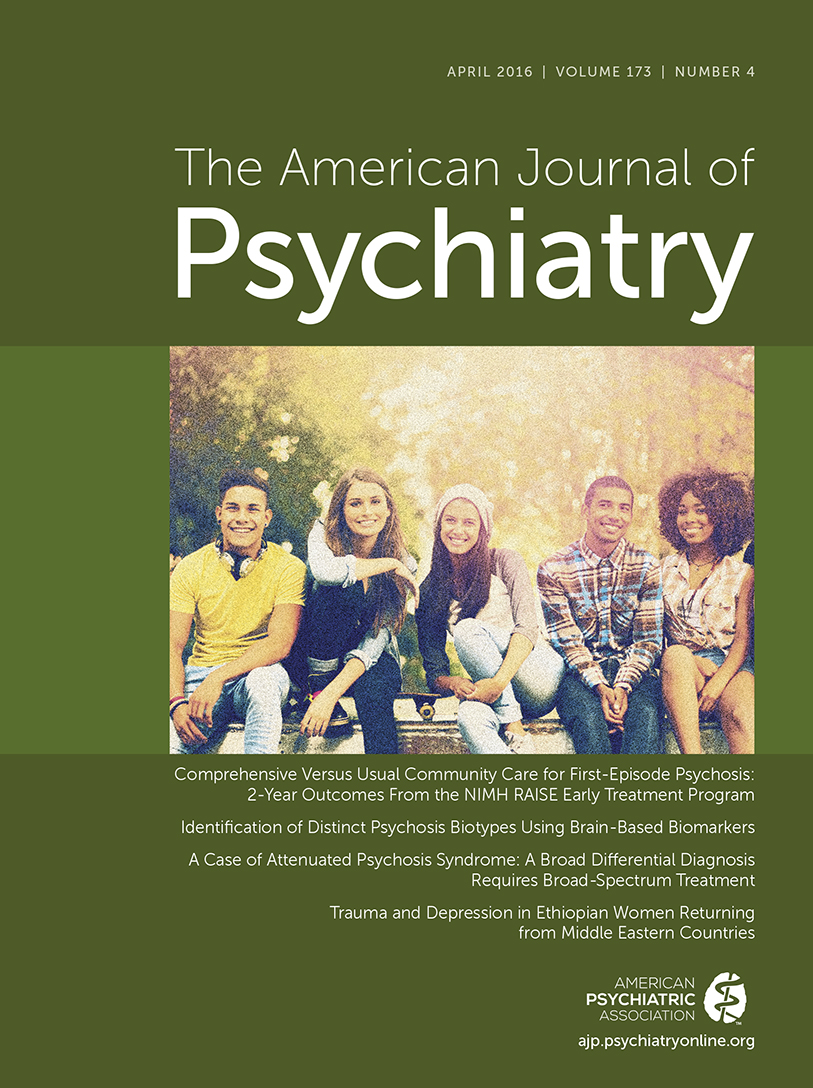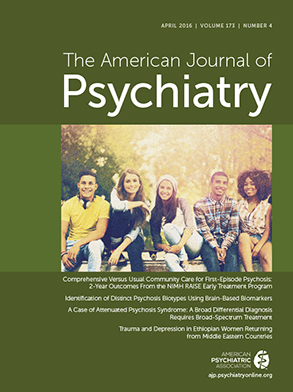T
o the E
ditor: Newport et al. (
1), in their systematic review of
N-methyl-
d-aspartate antagonists used for the treatment of depression that was published in the October 2015 issue of the
Journal, noted that ketamine does indeed have a rapid but transient antidepressant effect. However, the authors cautioned against using ketamine as a novel antidepressant for treatment-resistant depression because they claimed that ketamine’s underlying mechanisms of action are not entirely understood. Moreover, they warned against the use of ketamine in the long term, in view of its inherent neurotoxicity as well as its potential for abuse (
1). The authors’ findings and recommendations are in line with the reexamination by the Cochrane collaboration into the utility of ketamine as a rapid antidepressant for treatment of depression and of depression in bipolar disorder (
2,
3). Part of the reason for the increasing popularity of ketamine as a rapid antidepressant worldwide has to do with the portrayal of its inherent clinical effectiveness by the media (
4). If all previous studies were critically appraised, one would see flaws indicating that further rigorous evaluation is necessary prior to ketamine’s being recognized as a treatment modality. Follow-up intervals in previous studies have been too short, and hence, the addictive potential of ketamine could not be demonstrated (
5). In addition, most of the previous studies did not use ketamine as a sole agent in treatment; other psychotropic medications were administered concurrently to patients (
6). In some studies, there might be a practice effect, given that questionnaires were administered frequently (
7). Moreover, some studies (
8) have reported that ketamine has a role in the rapid reduction of suicidal ideation, but this interpretation is flawed because subjects who were recruited had low suicidal ideation scores to begin with. Hence, the reduction in scores would render those results statistically insignificant. In addition, the rapid antidepressant effect that ketamine induces might be due to its inherent amphetamine-like properties. More recent studies (
9) have demonstrated how ketamine could help to successfully reverse the hypodopaminergic state following acute withdrawal from amphetamine. This does imply that ketamine has inherent stimulant properties. This property might cause a rapid improvement in mood, but it might also cause further addiction issues. While the authors have stated the risks associated with chronic ketamine use, they have neglected the genitourinary complications that result from chronic use of ketamine. The long-term use of ketamine could lead to chronic interstitial cystitis. This systematic review performed by the authors is timely and reminds psychiatrists to consider several issues with regard to the utilization of ketamine.

